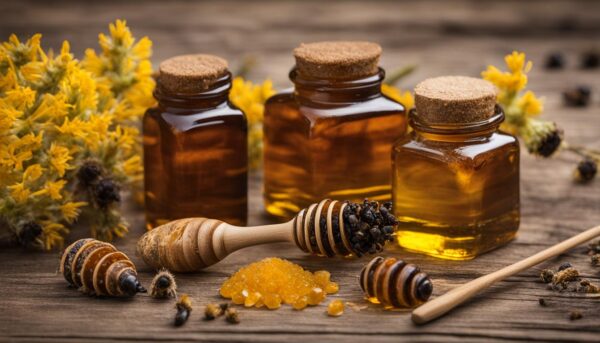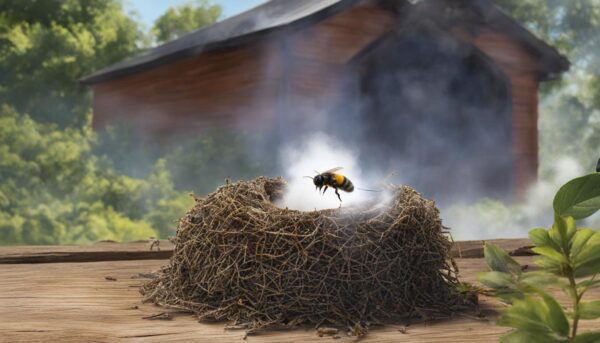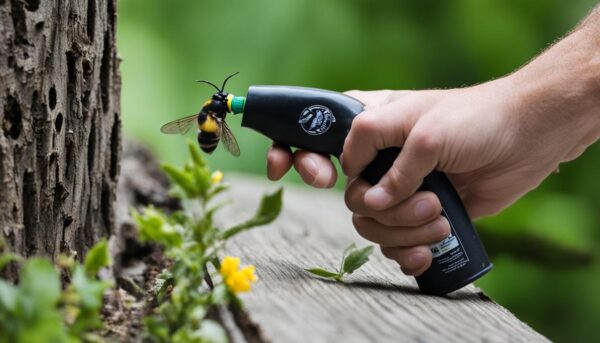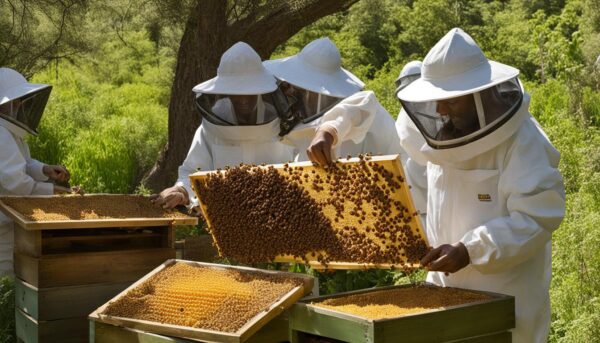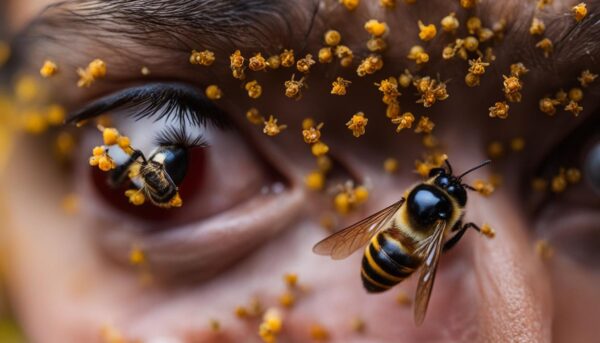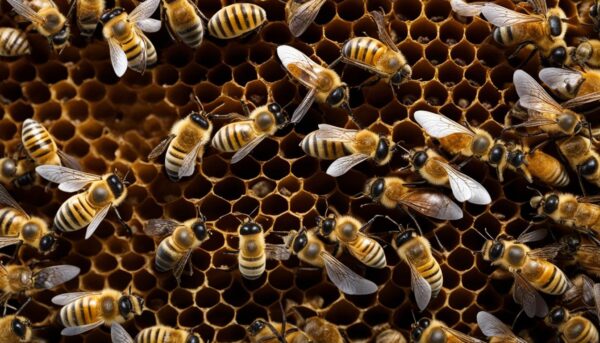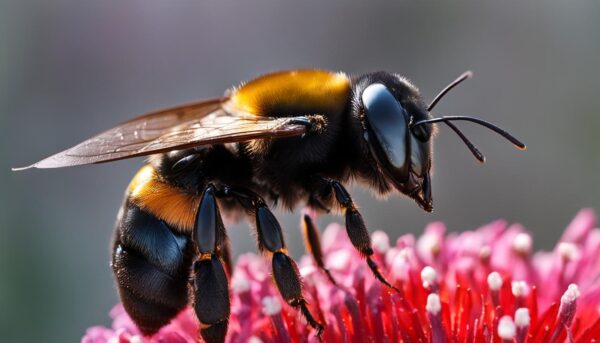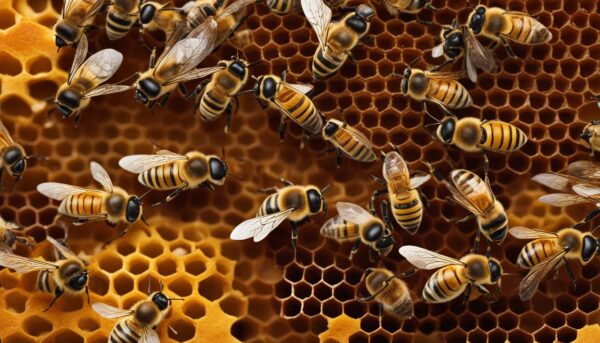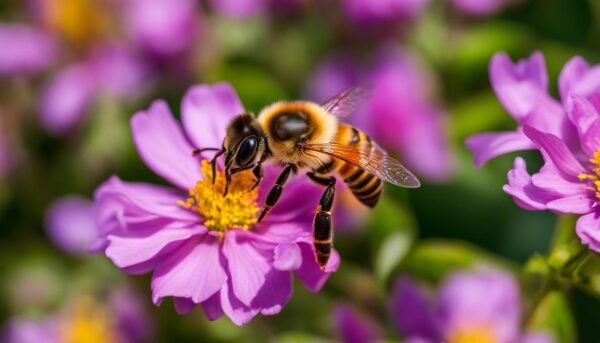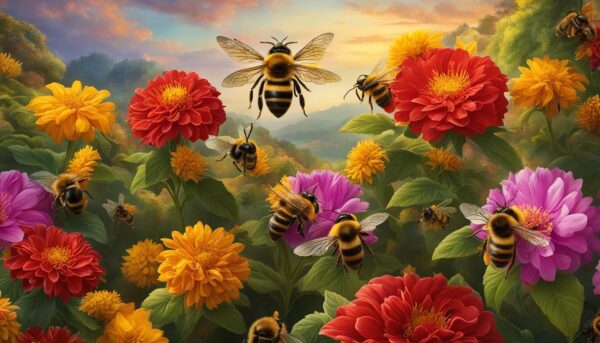Propolis, a natural bee product with numerous health benefits, goes by various alternative names in different cultures and regions. From bee glue to bee putty, propolis is known for its sticky and resinous nature. Let’s explore some of the alternative names for propolis that reflect its association with bees and its unique properties. Key Takeaways: […]
How to Eliminate Carpenter Bees Permanently
Carpenter bees, though native pollinators, can wreak havoc on wooden structures with their nesting behaviors. From unsightly holes to potential structural damage, these bees can be a nuisance. In this article, we will explore effective methods to permanently get rid of carpenter bees and protect your home. Key Takeaways: Understanding carpenter bee behavior is crucial […]
How to Exterminate Carpenter Bees: Effective Tips and Methods
Carpenter bees can pose a significant threat to wooden structures, causing damage that may require professional pest management services for effective extermination. In addition to the potential structural damage, these bees can also create entry points for other pests, such as termites. Therefore, it is crucial to address carpenter bee infestations promptly and effectively. Key […]
How Bees Make Royal Jelly: A Detailed Guide
Royal jelly is a fascinating substance produced by worker bees. Have you ever wondered how this valuable food source is made? In this detailed guide, we will explore the intricate process behind royal jelly production by bees. Key Takeaways: Worker bees transform honey and pollen by mixing it with their saliva to create royal jelly. […]
Effects of Bee Pollen on Health: Can It Make You Sick?
Bee pollen has gained popularity as a superfood due to its rich nutritional composition. However, scientific research has yet to confirm any specific health benefits associated with bee pollen. While it contains essential vitamins, minerals, carbohydrates, lipids, and protein, there is no evidence to support claims that it can cure health problems or enhance athletic […]
Unveiling the Intricate Process of Queen Bee Reproduction
Queen bee reproduction is a fascinating process that involves genetic modification and diet differences. By transferring genetic material from breeder queens to cell-building colonies, worker larvae can be redirected to become queen bees. The development of queen larvae is triggered by the diet of royal jelly, while worker larvae are fed worker jelly. This differentiation […]
Solve Carpenter Bee Problems with Effective Spray Solutions
A carpenter bee infestation can be a frustrating and damaging problem for homeowners. These bees can cause significant damage to wood structures, compromising their integrity and leading to costly repairs. Fortunately, there are effective spray solutions available that can help eliminate carpenter bees and protect your property. Key Takeaways: Using the right spray is crucial […]
Why Do Bees Follow the Queen Bee: A Fascinating Insight
The behavior of bees within their colonies has long intrigued scientists, as they exhibit a remarkable social hierarchy and intricate communication systems. At the core of this complex structure lies the queen bee, whose role and influence are vital to the survival and functioning of the entire colony. The queen bee’s significance stems from her […]
Bee Pollination: The Process of Collecting Pollen
Bees play a vital role in pollination, which is the transfer of pollen from the male parts of a flower to the female parts. This process is essential for the fertilization of plants and the production of seeds. Bees, especially European honey bees, are the primary insect pollinators, but there are also hundreds of other […]
Bee Hive Queen Bee: Discover the Reigning Monarch of the Bee Colony
The queen bee holds a vital role in the bee colony as the reigning monarch. Her purpose is to ensure the survival and prosperity of the colony by laying a large number of eggs, up to 2,000 per day. She has an extended lifespan compared to worker bees and plays a crucial role in maintaining […]

